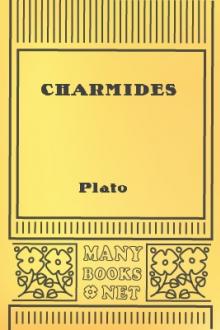Genre - Philosophy. You are on the page - 12

hionable education in fault. 6. Sobriety. Definition of the term. An anecdote. Love of mental and bodily excitement usually connected. 7. Industry. How to judge whether a person is industrious. 8. Early rising. A mark of industry. Late rising difficult of cure. 9. Frugality. Its importance shown. 10. Personal Neatness. Its comforts. 11. A good temper. Its importance illustrated. 12. Accomplishments. 263-305 CHAPTER VII. --CRIMINAL BEHAVIOR. Section I. Inconstancy and Seduction.--Constancy. Its

s re-issue of Paterson and {v} Zderad's classic work will help to remind us of another way of developing our power. Perhaps we can, once again, look for and call for authentic dialogue with our patients, our students, and our colleagues. Paterson and Zderad are clear in their method: discuss, question, convey, clarify, argue, and reflect. They remind us of our uniqueness and our commonality. They tell us that it is necessary to do with and be with each other in order for any one of us to grow.

f his words and acts, the trifles he never considers,--is tremendous. Every moment of life he is changing to a degree the life of the whole world. Every man has an atmosphere which is affecting every other. So silent and unconsciously is this influence working, that man may forget that it exists.All the forces of Nature,--heat, light, electricity and gravitation,-- are silent and invisible. We never see them; we only know that they exist by seeing the effects they produce. In all Nature the

ot worthy of much consideration. For why shouldAristotle, because he has quoted several Dialogues of Plato, have quotedthem all? Something must be allowed to chance, and to the nature of thesubjects treated of in them.) On the other hand, Mr. Grote trusts mainlyto the Alexandrian Canon. But I hardly think that we are justified inattributing much weight to the authority of the Alexandrian librarians inan age when there was no regular publication of books, and every temptationto forge them; and

PSYCHOLOGY OF THE LEADERS OF THE REVOLUTION1. Mentality of the men of the Revolution. The respective influence of violent and feeble characters 2. Psychology of the Commissaries or Representatives on Mission'' 3. Danton and Robespierre 4. Fouquier-Tinville, Marat, Billaud-Varenne, &c. 5. The destiny of those Members of the Convention who survived the Revolution BOOK III THE CONFLICT BETWEEN ANCESTRAL INFLUENCES AND REVOLUTIONARY PRINCIPLES CHAPTER I. THE LAST CONVULSIONS OF ANARCHY. THE

the Life ofReason, if it were brought to perfection, intelligence would be at oncethe universal method of practice and its continual reward. Allreflection would then be applicable in action and all action fruitful inhappiness. Though this be an ideal, yet everyone gives it from time totime a partial embodiment when he practises useful arts, when hispassions happily lead him to enlightenment, or when his fancy breedsvisions pertinent to his ultimate good. Everyone leads the Life ofReason in so